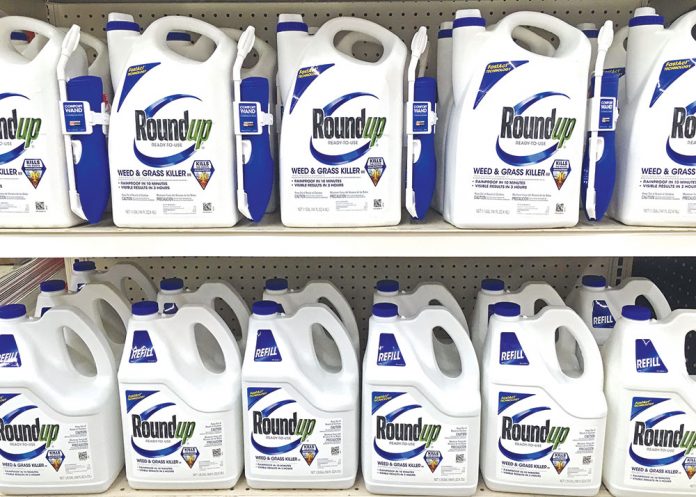As lawsuits are piling up against the makers of the herbicide Roundup and some cities and counties in California are cutting back or considering bans on its use, the Gilroy Unified School District is leading the way—and has for nearly three years.
The district now uses steam, not chemicals, to kill weeds around school yards, and is even experimenting with goats and sheep to control unwanted grasses.
Gilroy schools use no products containing glyphosate, the herbicide found in Roundup, said Maintenance and Operations Manager Dan McAuliffe, in response to questions from the Dispatch.
Led by Superintendent Debbie Flores, the district began reducing its use of pesticides five years ago, and in 2016, the district stopped using Roundup and other products containing glyphosate.
McAuliffe said the school district was one of the first in Northern California to implement this practice.
“Since then, our maintenance and operations staff have tried and tested many alternative organic products that do not have glyphosate,” he said. “The district moved away from conventional pesticides in 2016 and now uses an organic EPA-exempt product for pest control as our primary pest control.”
McAuliffe said school district staff do not use any pesticide other than EPA-exempt products, although he acknowledged that its pest-control contractor, Advanced IPM, has used EPA-registered products with permission “in severe cases and in very rare instances.”
The school district has to file regular reports with the state Department of Pesticide Regulations. The most recent report that was submitted by the district in February 2019 indicated no pesticide usage in 2017 and 2018.
As an alternative, the district purchased a Weedtechnics steam weed-killing machine in January 2018, “and that is our primary source of weed control,” said McAuliffe. The Weedtechnics machine is completely organic and uses only water, he added.
“It is labor-intensive for our maintenance staff and requires multiple applications, but is a very safe method of weed control for staff and students. If there is a need for additional weed abatement, we are testing several alternative methods of organic weed control.” McAuliffe said the school district also has tried using a propane torch that burns weeds along fence lines and baseball infields in cool and mild weather; the torch is not used in the warmer, dry seasons.
“We have also used goats and sheep for clearing weeds,” he said. “They do a great job and as an added bonus, provide a fun experience for the public as they visited the goats at the site to watch their antics.”
The school district’s alternative organic products are applied when staff and students aren’t present in order to avoid disruptions during the school day. Most products are applied when school sites are on break, McAuliffe said.
“Weed abatement products are usually used out in open fields and exterior planters where staff and students aren’t directly affected. Some of our staff and students have shared that there is a distinct smell when these products are applied at our sites—the product that we are currently using has a citrus smell, much like lemon juice.”
Use of Roundup and other glyphosate products has become increasingly controversial, especially in California, In the wake of a second successful lawsuit against Bayer, owner of Roundup maker Monsanto last month, the city of Napa and Los Angeles County banned use of Roundup and its active herbicide. On the Central Coast, the San Lorenzo Valley Water District last month banned use of glyphosate by its staff on its large mountain watershed.
Use of the herbicide is widespread by CalTrans, school districts and cities, and it’s readily available in hardware and garden retail stores in California, despite the state’s 2017 determination that the herbicide can cause cancer. California continues to license and approve its use under strict guidelines. California was the first state in the US to list glyphosate as a carcinogen.
Proposition 65, approved by California voters in 1986, requires the state to publish a list of chemicals known to cause cancer, birth defects or other reproductive harm.
Glyphosate is the world’s most widely used weed killer. Monsanto’s Roundup was the first glyphosate-based weed killer but is no longer patent-protected, and many other versions are now sold.
The US Environmental Protection Agency, the European Chemicals Agency and other regulators have found that glyphosate is not likely carcinogenic to humans. But the World Health Organization’s cancer arm in 2015 reached a different conclusion, classifying glyphosate as “probably carcinogenic to humans.”
The most recent case was only the second of some 11,200 Roundup lawsuits to go to trial in the US.














